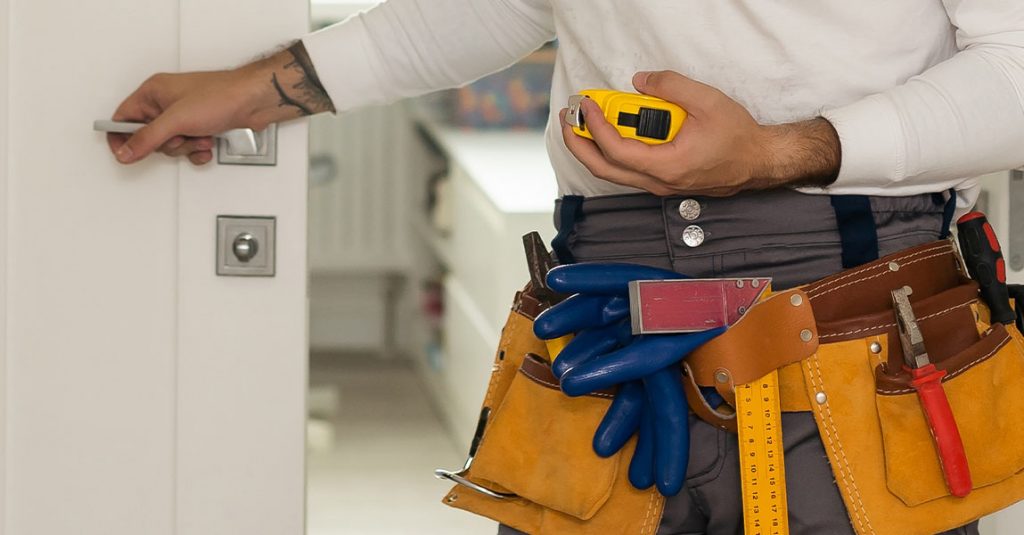When we talk about improving security at home, the locks on our doors are the first thing we often consider. We usually hear two common terms—rekeying and replacement. At first glance, they might sound similar, but in reality, they serve different purposes. To clarify, rekeying a lock means adjusting the internal pins so that a new key works while the old one doesn’t. In other words, it’s like giving the lock a new identity without changing its outer appearance.
On the other hand, replacing a lock involves removing the entire hardware and installing a new one. Therefore, not only does the key change, but the whole mechanism is swapped out. This can also be useful if the existing lock is damaged or outdated. We help many homeowners decide between these two options depending on their goals, budget, and urgency. You can always reach out to us if you’re unsure, we’re here to help.
When Rekeying Makes More Sense Than Replacing
There are times when rekeying is the most logical step. For example, if you’ve just moved into a new home, it’s hard to know how many spare keys the previous owner had floating around. In that case, rekeying the existing locks helps secure the home without the cost of full replacements. Likewise, if a roommate moves out or you lose track of who has a spare key, rekeying provides peace of mind.
It’s also worth noting that rekeying is usually more affordable than full replacement. As a result, many people choose it as a cost-effective solution for maintaining control over who has access. Rekeying is also convenient when you want to use one key for multiple locks. We’ve done this for several homeowners who were tired of carrying a bulky keyring. If your locks are in good shape and meet security standards, rekeying is often the smarter route.
Why Some Situations Call for a Full Lock Replacement
Of course, not every situation allows for rekeying. If your lock is damaged, rusted, or outdated, replacing it entirely becomes necessary. Sometimes, we find that the hardware has been tampered with or doesn’t meet modern safety standards. In those cases, a new lock brings not only security but also peace of mind. Furthermore, some older locks can’t be rekeyed at all, especially if they’re worn beyond repair or part of a discontinued system.
Another reason to consider replacement is when you want to upgrade to newer technology. For instance, if you’re moving from a traditional lock to a smart lock system, a full replacement is required. Similarly, if your current lock style doesn’t suit your door or security needs, we recommend choosing a replacement instead of spending time and money rekeying something that’s no longer ideal. There are a lot of modern options available through residential locksmith services in Ottawa that make these upgrades easier than ever.
Comparing the Costs: What You’re Actually Paying For
Cost is always a major factor when deciding between rekeying and replacing. To be transparent, rekeying tends to be less expensive because it involves less hardware and fewer parts. Most of the time, we only need to change the internal pins and provide a new key. On the other hand, lock replacement includes new equipment and installation labor. As a result, the price can rise significantly depending on the type and brand of lock you choose.
However, spending more upfront on a high-quality replacement can sometimes save you long term. That is to say, if you invest in a durable, secure lock today, you might avoid repair or upgrade costs later. We always encourage people to think not only about the immediate cost but also about the expected lifespan of the lock. It’s all about finding the right balance between short-term savings and long-term value. You can always discuss this with us during any locksmith services in Ottawa appointment.
Which Option Is Better for Rental Properties or Shared Spaces
For property owners managing rentals or multi-unit buildings, rekeying is often the preferred option. After every tenant move-out, rekeying provides a clean security slate without replacing all the hardware. This keeps turnover quick and costs low. Moreover, having a consistent lock model across all units makes rekeying faster and easier. We’ve worked with landlords who keep spare cylinders on hand to streamline this process.
However, if a lock is broken, misaligned, or doesn’t match the property’s security expectations, replacement might be necessary. This can also apply in cases where the original lock doesn’t meet fire safety or insurance standards. As a result, you might find yourself needing both options at different times. The key is knowing when each solution is most appropriate. We always assess the situation before recommending either.
Extra Insight: The Key Code Doesn’t Change with a Replacement
Here’s a helpful tip most people don’t know. When you replace a lock, the key might change, but the internal code system of your property doesn’t necessarily update unless specifically reprogrammed or changed. Therefore, simply replacing one lock with a similar model may not always improve security. We often advise customers to be intentional about what kind of replacement they choose. For example, moving to a different brand or locking mechanism can prevent old keys or bump tools from working.
Similarly, it’s worth knowing that many people assume keyless entry systems eliminate the need for rekeying, but even those can be reset or updated internally. If someone has the passcode and you don’t want them to access the property anymore, the system needs to be cleared and reprogrammed. We’re happy to guide you through that if needed. Choosing the right option depends on how deep you want to go in re-establishing your home’s security foundation.
Upgrading Multiple Locks? Don’t Forget Keying Alike
If you’re upgrading multiple locks in one go, one thing to consider is keying them alike. That means configuring all your locks to work with a single key. It may seem minor, but in daily life, it really makes a difference. Instead of fumbling through different keys at the front, side, or garage doors, you can unlock all with one motion. We often do this for homeowners who are replacing several locks at once and want a cleaner, simpler experience.
To clarify, this doesn’t happen automatically. You have to request it when ordering new locks or scheduling a rekey. In addition, not all lock types are compatible, so a quick check before purchase can save time and frustration. You don’t have to figure this out on your own. Just ask, and we can help match your lock styles to make this process smooth. It’s a small thing that adds a lot of convenience over time.
How to Know If You Need a Locksmith for the Job
Some people attempt DIY rekeying kits or replacement projects, but the reality is these tasks often require precision and expertise. A small misalignment or incorrect pin setting can lead to lockouts or security flaws. For instance, rekeying requires exact pin placement that matches a specific key, and mistakes can cause the key to stick or not turn at all. Consequently, this can lead to further damage if forced.
Lock replacement also isn’t as simple as it may seem. Doors vary in thickness, material, and alignment. Installing a lock without proper measurement could leave gaps or make it easy to force open. In our experience, calling a professional helps avoid those pitfalls and ensures the lock works right the first time. If you’re unsure what kind of help you need, feel free to contact us for clear and helpful advice with no pressure.
FAQ
What’s the main difference between rekeying and replacing a lock?
Rekeying changes the lock internally so a new key works, while replacing removes the entire lock and installs a new one. Rekeying keeps the old hardware, and replacement gives you a fresh start.
Is it cheaper to rekey or replace a lock?
Rekeying is generally cheaper because it involves fewer parts and no new lock hardware. However, if the lock is old or damaged, replacement may be more cost-effective long term.
Can all locks be rekeyed?
Not always. Some older locks or very worn hardware may not be compatible with rekeying tools or may be too damaged to adjust safely. In such cases, replacing the lock is a better option.
How long does it take to rekey a lock?
It usually takes about 10 to 20 minutes per lock, depending on the complexity and the number of pins inside. If you’re rekeying multiple locks, it can take a bit longer.
Should I rekey after losing my house key?
Yes, especially if you’re unsure who might find it. Rekeying ensures that your lost key can’t be used to access your home, providing quick and affordable peace of mind.

